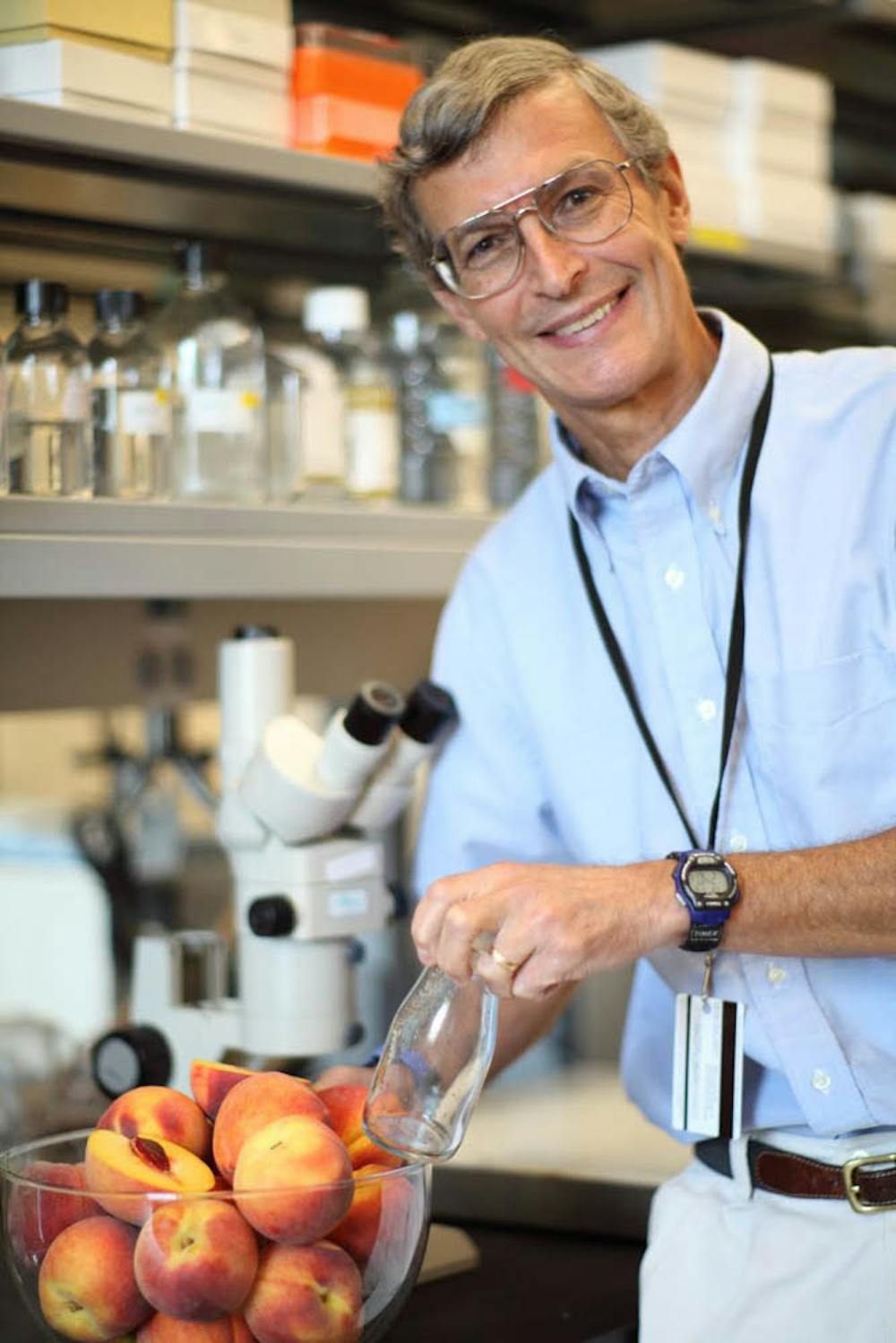After Professor of Medical Science Michael McKeown died Dec. 21, many colleagues reflected on McKeown’s passion for both scholarly pursuits and advocacy that permeated his life’s work.
After graduating from Stanford University and the University of California, San Diego, McKeown launched his research on genetics as a Helen Hay Whitney postdoctoral fellow, wrote Dean of Medicine and Biological Sciences Jack Elias in a community-wide email Jan. 20. McKeown’s studies examined the effect of genetics on biological processes in complex organisms, using the sexual behavior of the Drosophilia as a model, according to the University’s website.
“He was a bright and engaging mentor and was very passionate about understanding what was going on,” said Barbara Taylor, professor of integrative biology at Oregon State University. Taylor met McKeown while she was a graduate student and he was a post-doctorate at University of California, San Diego, and the two collaborated for many years.
Colleagues remembered McKeown’s unparalleled intellect. In a research setting, McKeown was “just incredibly off-the-scale smart and a very creative, fast thinker,” said Mariana Frederic Wolfner, professor of molecular biology and genetics at Cornell, where she worked in the same postdoctoratal lab as McKeown. “The work he did was absolutely beautiful,” she added.
Beyond his scholarly acumen, McKeown also brought his sense of humor wherever he worked.
“He was very funny and would play practical jokes not mean ones — just silly jokes on us,” Wolfner said. “He was a lot of fun to be around.”
As McKeown was leaving a postdoctoral lab in 1985, Kenneth Burtis, interim provost and professor of genetics at University of California, Davis, was joining that lab, he wrote in an email to The Herald. “He was very kind in helping me to appreciate the nuances of the scientific area I was moving into and in becoming acquainted with the history of the lab,” he added.
From 1991 to 1999, McKeown organized and taught the Advanced Genetics course at University of California, San Diego and provided summer research opportunities for underrepresented groups through the Elementary Institute of Science research program, according to the University’s website.
Joining Brown’s community in 2000, McKeown became a faculty member in the Department of Molecular Biology, Cell Biology and Biochemistry, Elias wrote. Over the following 16 years, his immense contributions helped further both the department’s teaching and research missions, said Kimberly Mowry, professor of biomedicine and biology and chair of molecular biology, cell biology and biochemistry.
McKeown taught both undergraduate and graduate courses in genetics and molecular biology, including BIOL 0154: “Molecular Genetics” and BIOL 0047: “Genetics,” the main undergraduate genetics course that serves as a key component of pre-medical training, according to the University’s website. He also taught three graduate seminars and served as the instrumental director of graduate studies for the graduate program in molecular biology, cell biology and biochemistry from 2001 to 2009.
“He really embraced the concept of active learning,” Mowry said. “Getting students excited about science was one of the things he loved to do most.” For his large undergraduate genetics course, McKeown himself pioneered a supplemental clinic to work on problem solving and to lend an additional hand to a challenging subject.
A research mentor to undergraduates and graduates alike, he also hosted two summer students who were participating in Leadership Alliance, a consortium of academic institutions to promote research among underrepresented students, according to the University’s website.
Apart from his academic pursuits, McKeown was deeply passionate about another STEM field — math. Both McKeown and his wife, Erica, were active in K-12 mathematics and science education issues and co-founded Mathematically Correct, a nationwide math advocacy group, according to the University’s website.
McKeown’s death has incalculably affected the many students he taught and worked with, as well as colleagues in the numerous University committees he served on.
“Whenever Mike walked into a room, he always had a big smile on his face,” Mowry said. “It was clear that teaching at Brown was a real love for him, and he was one of the nicest people I ever met.”
Wolfner added that McKeown was “someone who would always have something funny to say, no matter what the subject was. I was always amazed at how much he knew — books, science, life — he was always just really fun to talk with.”
McKeown is survived by his wife, Erica, and their three children: twins Charles and Rebecca and their second son, Gene.





